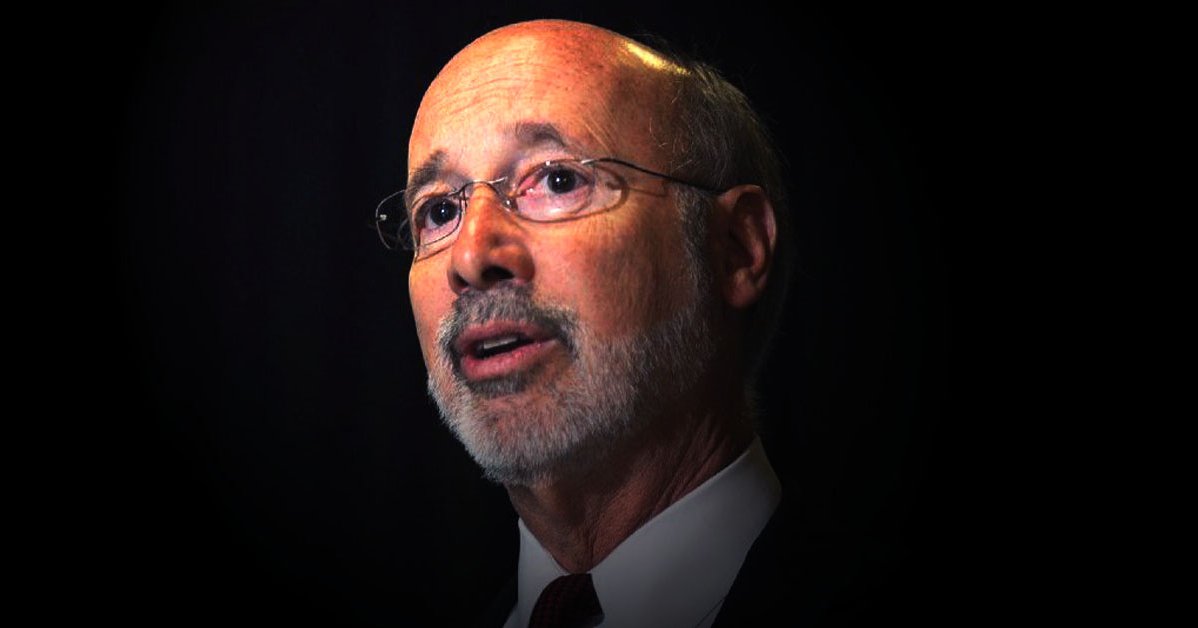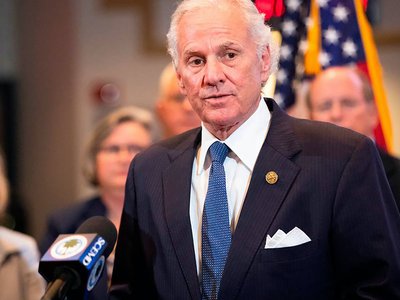For weeks, Democrats and progressives have leveled charges of “voter suppression” against Republicans for advancing bills designed to enhance election integrity. Georgia’s new election law — which has been wildly distorted by President Biden — is the most infamous of several examples. But amid the sound and fury over election reforms, a genuine attempt to deceive and manipulate voters is flying under the radar — and it’s being perpetrated by Democrats themselves.
As in many states, Pennsylvania Gov. Tom Wolf, a Democrat, declared a state of emergency at the beginning of the pandemic that granted him unprecedented power over schools, businesses and families. Since then, like many governors, he has fought tooth-and-nail to hold on to that power — often overruling the people’s representatives in the legislative branch in the process. In the past year, he extended his emergency declaration four times, with no benchmark for ending it. And through it all, he has issued livelihood-destroying orders under a cloak of secrecy.
The economic devastation wrought by Wolf’s shutdown orders spurred state lawmakers to push back with 12 bills to reopen the economy, only to be met with gubernatorial vetoes at every turn. While lawmakers eventually succeeded in forcing Wolf to follow basic transparency tenets during the emergency, the governor blocked their attempt to end the emergency declaration through legislation.
Wolf’s message to Pennsylvanians is clear: On the pandemic, it’s my way or the highway.
Unwilling to allow one man to perpetually control the economy, lawmakers tried a new tack, passing amendments to the state constitution designed to rein in the governor’s unchecked power. Eight states, including New York and Ohio, have succeeded in clawing back some control from their governors, according to Ballotpedia. None, however, has enshrined these reforms in its constitution.
Key to Pennsylvania lawmakers’ strategy is the fact that the governor cannot veto a constitutional amendment.
On May 18, two amendments will be on Pennsylvania’s primary ballot. One limits emergency declarations to 21 days and requires legislative approval for any extension. The other allows the legislature to end an emergency declaration by majority vote.
Pennsylvanians will get their chance to take back power from a governor who has overstepped his bounds. Except there’s one big problem: Wolf’s administration crafts the language for ballot measures, and he has put his thumb on the scale to confuse voters and keep his hold on power. Indeed, the wording of the ballot questions would make a typical voter think the legislature was stripping the governor of the ability to respond to a crisis and giving itself unilateral power.
The deceptive language has sparked outrage across the state. Berwood Yost, director of the Center for Opinion Research at Franklin & Marshall College, says the ballot question wording defies logic: “The most basic rules of question construction are commonsensical: form a question that is easy to understand, uses everyday language, uses words with clear and specific meanings, and is as short as possible.” Yost says the questions use “loaded terminology” and lack clarifying context.
Pennsylvania Senate President Pro Tempore Jake Corman, a Republican, says of the Wolf administration, “They clearly wrote [the ballot question] in a way for it to fail.”
If voters fall for the ruse and vote down the amendments, the governor maintains unchecked power over Pennsylvanians’ lives and livelihoods. There’s no other way to put it: The governor is trying to subvert democracy in plain sight.
Unfortunately, this problem is not new to the Keystone State. In 2016, again under the Wolf administration, two Pennsylvania Supreme Court justices sued the state claiming that a ballot question regarding their retirement age amounted to “a fraud on the Pennsylvania electorate.” In the five years since, the process has not changed. Voters are still subject to “fraudulent” ballot questions.
Anyone concerned about so-called “voter suppression” also should be concerned when elected officials manipulate the ballot itself to keep their grip on power.
Next week, Pennsylvanians could ensure that endless lockdowns without input from the people’s representatives are a thing of the past. If they do, it will be because voters see through the governor’s latest attempt to hide the truth and use the electoral process for political benefit.






